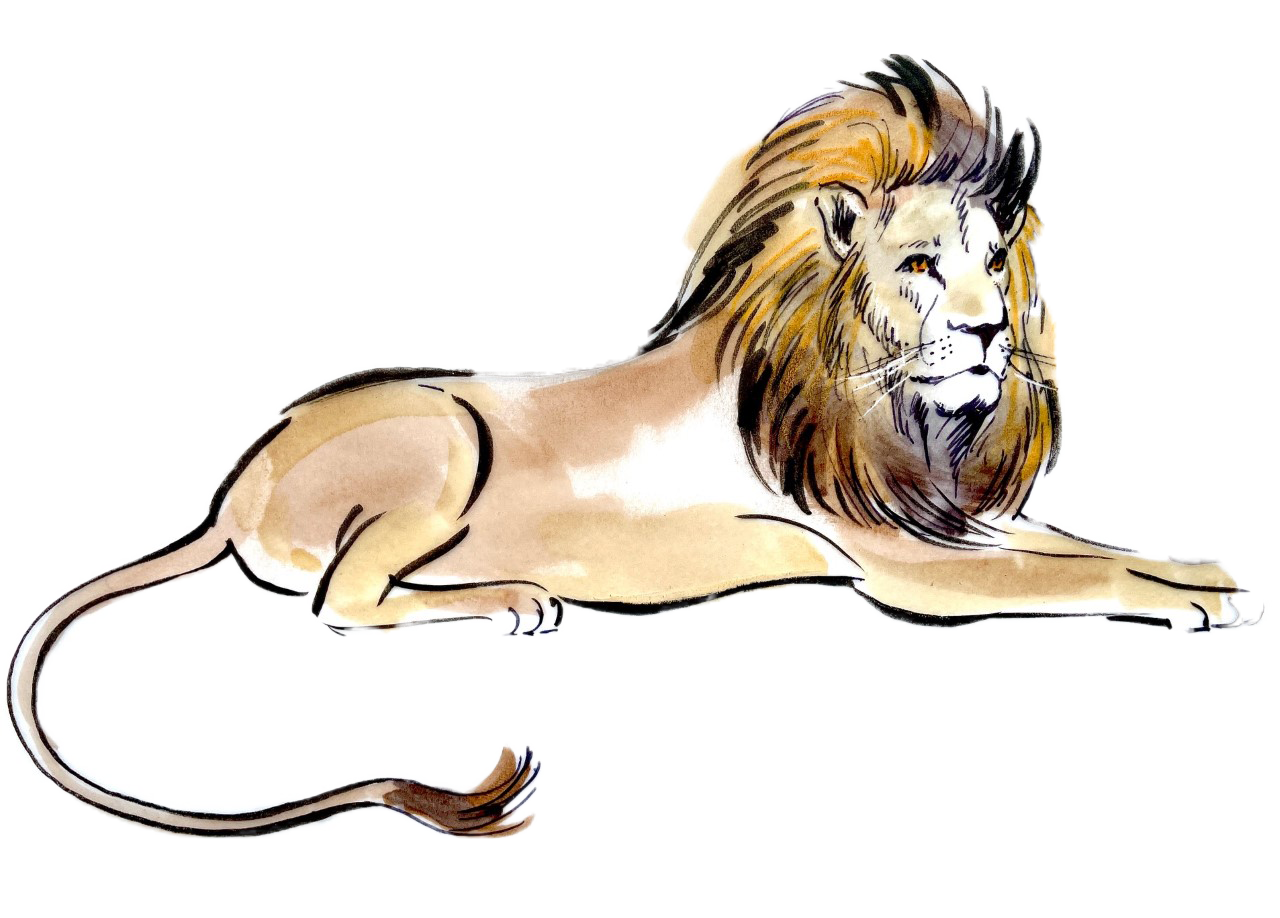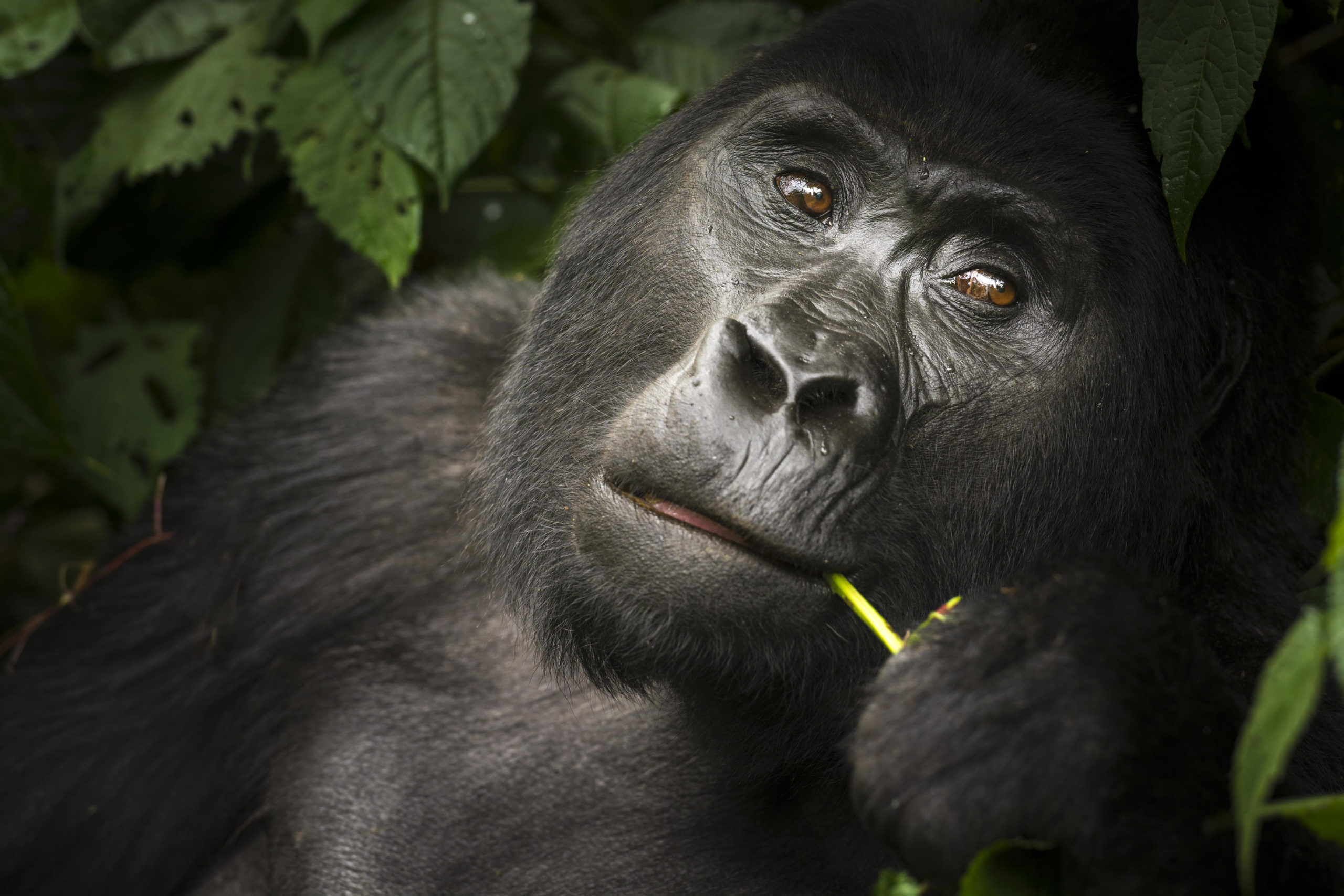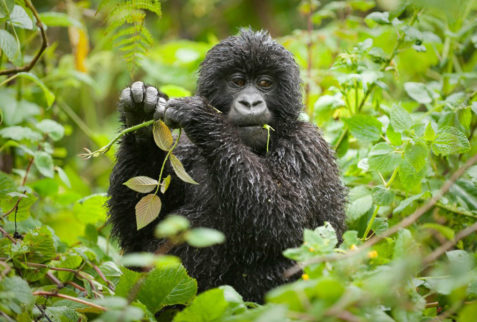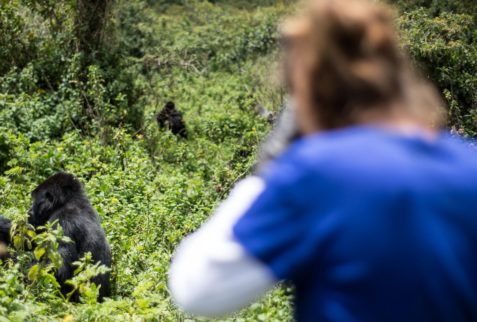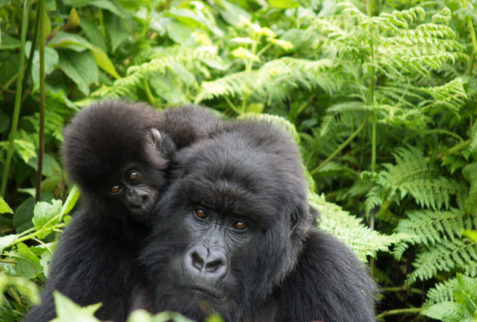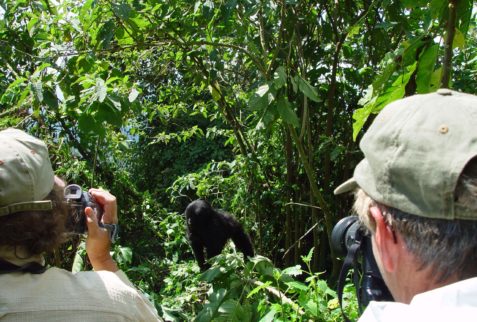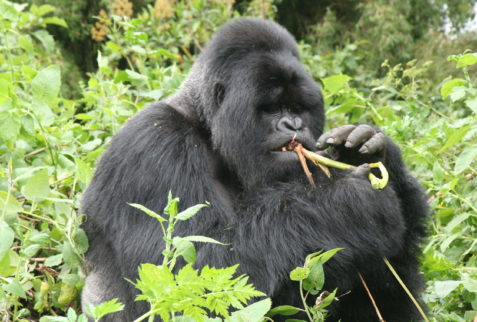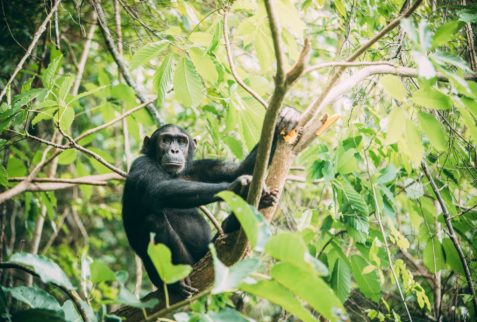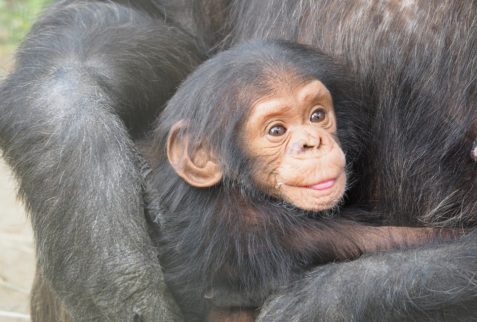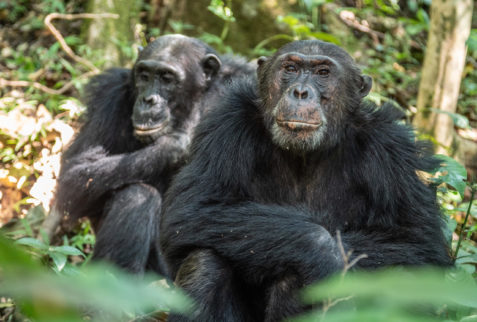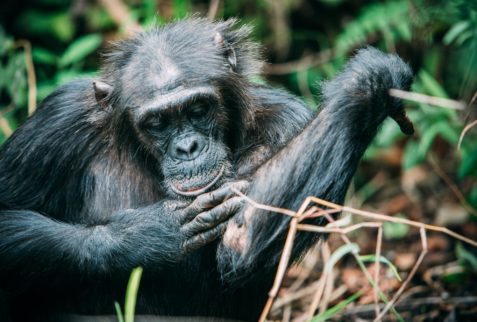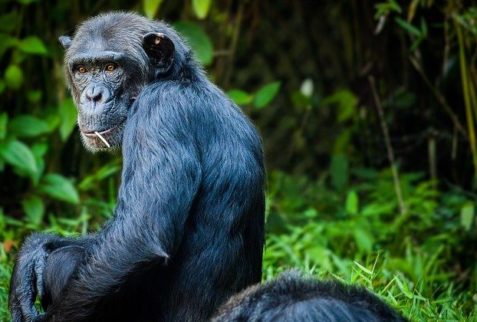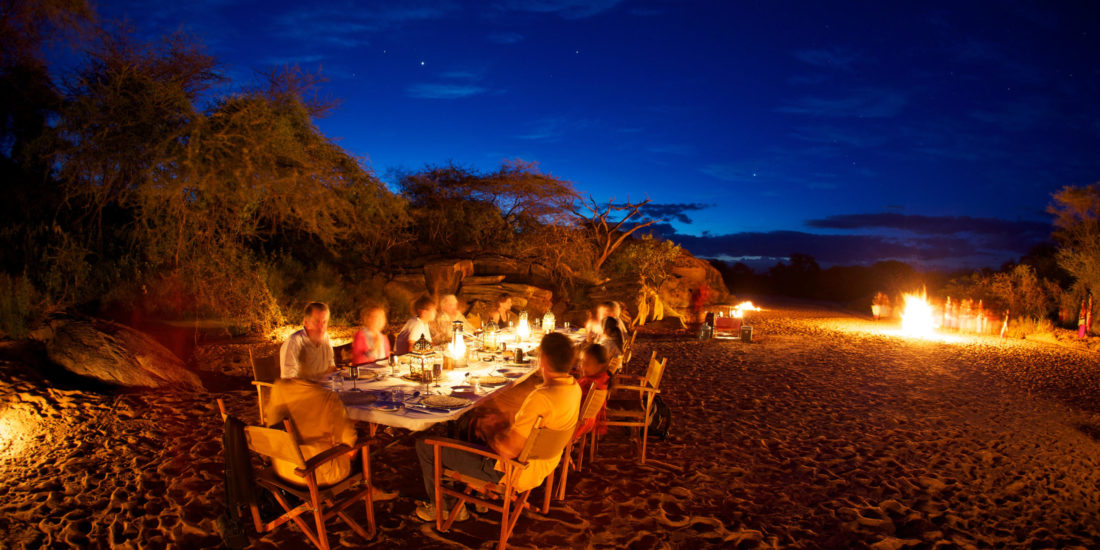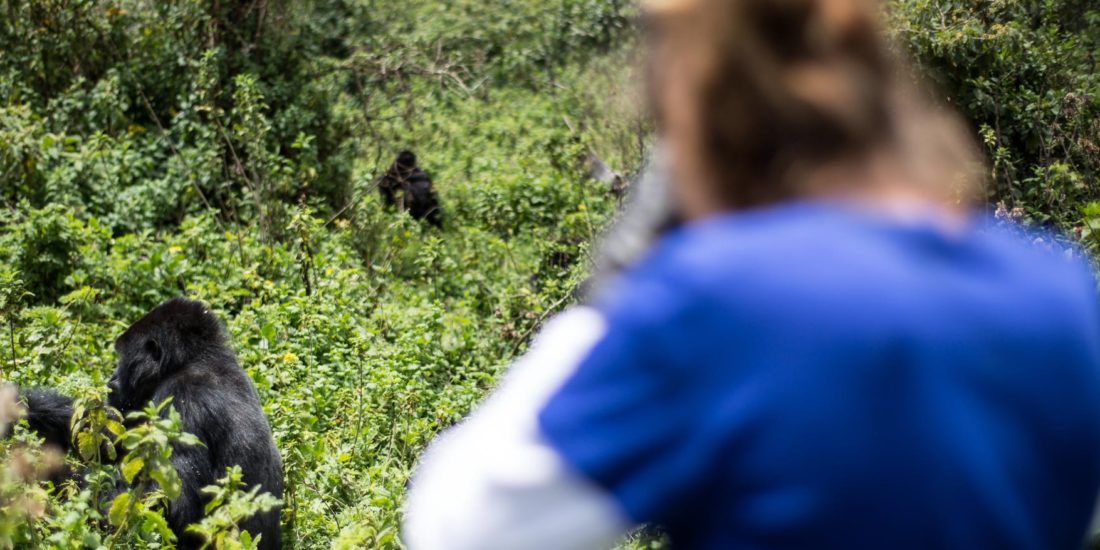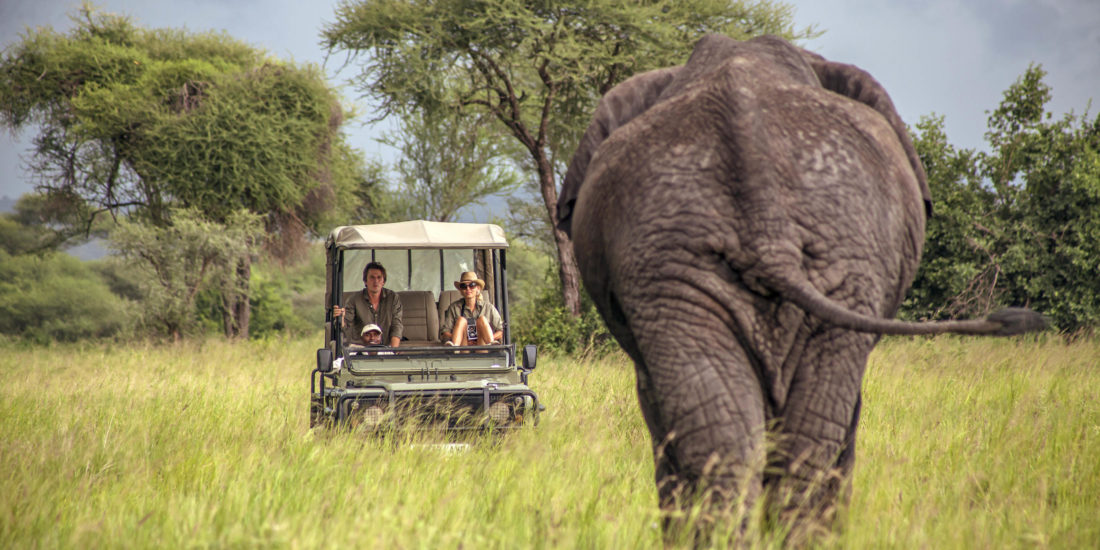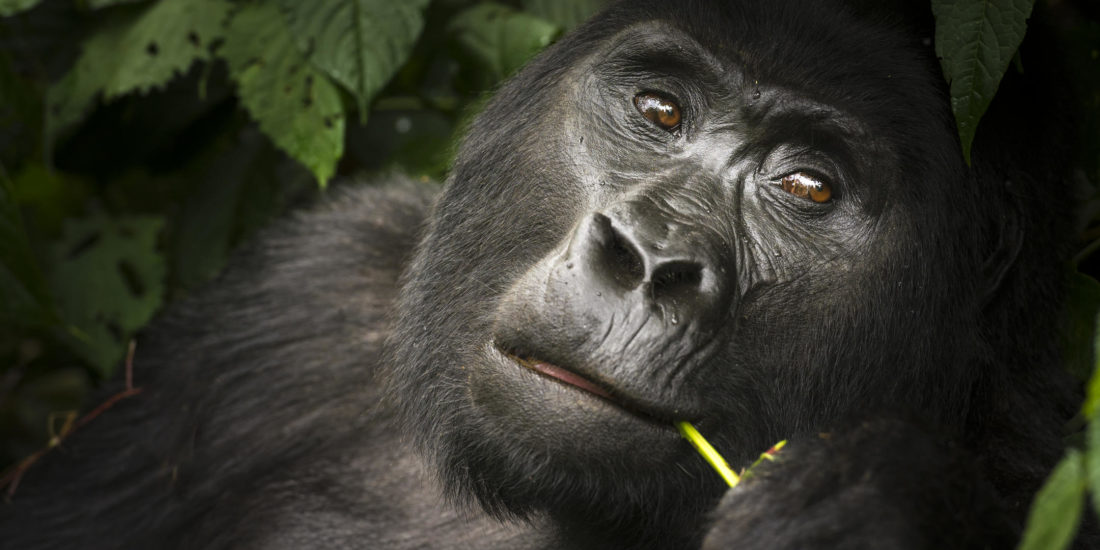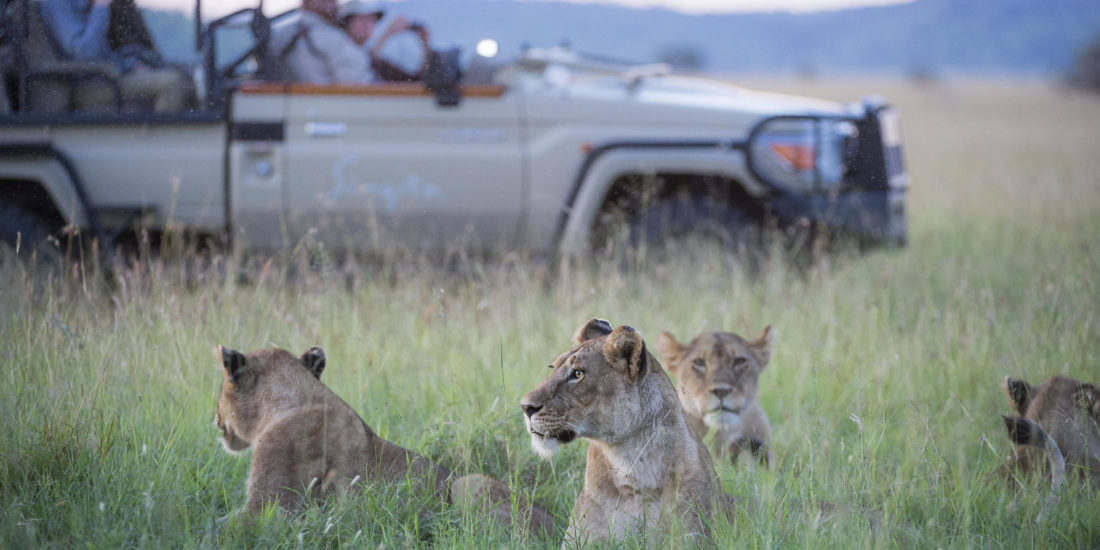There are few places left on earth where one can observe endangered wild gorillas and chimpanzees, and all of them are in Africa.
Gorilla trekking is considered one of the “Top 10 Wildlife Experiences” one may have in a lifetime, and those fortunate enough to experience it know why.
Who Should Consider Primate Trekking?
Fit, active travelers with a keen interest in primates and off-the-beaten path adventure.
Gorilla Trekking
Wild mountain gorillas live on the slopes of the volcanic mountain range that crisscrosses between Uganda and Rwanda. Their lesser-known cousins, the western lowland gorillas, live closer to ground in the rainforests of the Republic of Congo.
Trekking gorillas requires a permit in all three countries, with Rwanda being the most expensive ($1500 per person, per trek in 2023/24). Uganda permits are $750 per person, per trek. FOR THE MOST ADVENTUROUS: Trips into the Republic of Congo (Different from the DRC) are completely off-the-grid and can also include extensions to Central African Republic.
On the day of your trek, after an early morning meeting with your ranger, you and a maximum of seven other trekkers will set off on your journey to find the family to whom you have been assigned. Fun fact: Because the animals are so closely monitored by rangers (due to their endangered status), there is a 98% chance you will see gorillas on your trek.
The trek can take from two to four hours each way, depending on the location of the gorilla family. Because the activity can be strenuous, rangers will assess trekkers’ fitness level in advance and assign those with lower stamina to gorillas who have made their nests closer to the starting point.
Note: As the name implies, lowland gorillas are typically found on flatter ground, thus they are more easily located and the trek is typically shorter and less rigorous than the hike required to see mountain gorillas.
Once you have reached the family, you and your fellow trekkers will have one magical hour with these magnificent primates. Often, you will see the head of the family (the silverback) along with several female adults as well as younger males and juveniles; if you’re especially lucky, baby gorillas will also be in the mix.
CLICK ANY PHOTO TO ENLARGE
Chimp Trekking
East Africa is considered the birthplace of the classic safari. With a distinctly “Out of Africa” sensibility (referencing the 1985 classic film starring Meryl Streep and Robert Redford), safaris in Kenya and Tanzania are often planned around the Great Migration. Beyond the Migration, the resident game in both countries, inclusive of the fabled “Big Five”, is spectacular year-round.
Wild chimps can be found in Uganda, Rwanda and Tanzania. It is worth noting, Jane Goodall conducted her groundbreaking research on these fascinating creatures at Gombe in Tanzania, where her center is still in operation and can be visited today.
Unlike the peaceful mountain gorilla, who typically stays in one spot with his family for the day, the wild chimpanzee is always on the move. Boisterous, active and loud, the chimps swing between trees and often shimmy down to the forest floor to run and tumble, sometimes right past your feet.
As with the gorillas, the chimps you will observe are habituated to humans over the course of many months and years, though trekking group sizes remain very limited to ensure minimal disruption to the animals. You are allowed one hour with the chimps once they have been located.
Note: For those who may wish to spend more time with the chimps, a “Habituation Experience” can be arranged. You will accompany primate behaviorists who are in the process of familiarizing a new group of chimps to humans. Instead of spending an hour with these wild primates you will spend half a day or longer, observing the scientists at work.
Uganda, also known as the “Pearl of Africa” is one of the original safari destinations on the continent, offering a traditional safari experience along with the opportunity to track rare mountain gorillas. Gorilla trekking is often called one of the “Top Ten Wildlife Experiences” one can have in a lifetime and with good reason: spending time with these gentle creatures is both magical and awe inspiring. Rwanda, too, offers gorilla trekking and a traditional safari experience, though the latter is slightly less robust; combining Rwanda with another East African safari country is often recommended for those seeking a classic safari.

